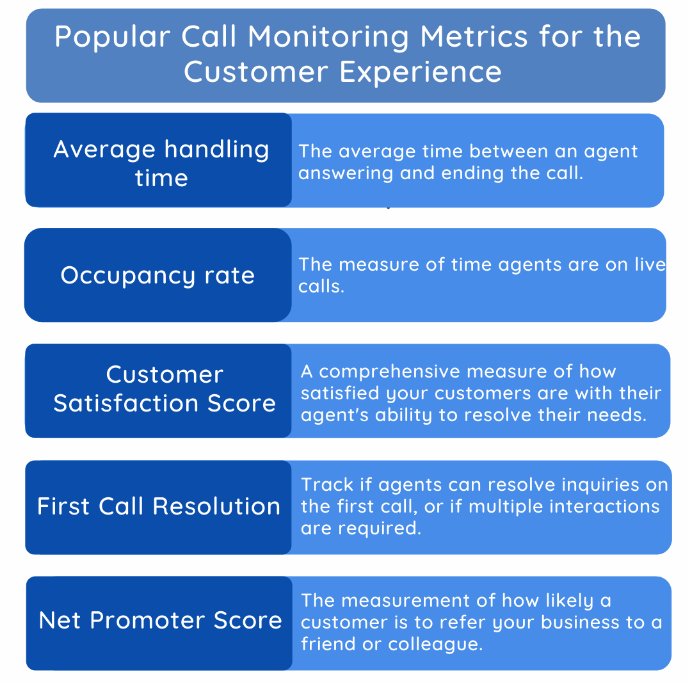The customer service industry is fiercely competitive, with customers becoming more discerning by the minute. If your business is based in a standard or multichannel contact center, it’s in your best interests to make sure your contact center agents are at the top of their game.
Call centers are notoriously affected by high turnovers of staff. Sub-standard staff retention is typically a result of employee disengagement.
With 59% of US businesses citing employee enablement as the leading factor shaping customer experience, it pays to invest in your contact center staff.
Empowered call center agents are more liable to:
- Be pleasant during customer calls
- Give quick customer responses
- Deliver relevant knowledge and resources to customers
- Resolve calls in the first instance
“We see our customers as invited guests to a party, and we are the hosts. It’s our job every day to make every important aspect of the customer experience a little bit better.” – Jeff Bezos
This article explores how to empower your contact center employees by maximizing your team’s engagement and retention. Let’s look at seven different ways to do this.
1. The Right Tools For The Job
Empowering your agents to be the best they can be means supporting them. Give your contact center agents access to the necessary resources to perform their job functionalities.
For example, do your agents know how to reach out to other departments for help? Are they aware of how to contact IT if they have an issue with their computer? Facilitating easy communications between teams enables agents to do their job to the best of their ability.
In addition to communication tools, your agents need access to quality assurance data:
-
Predictive Analytics.
Identify the best way to communicate with customers by predicting their behavior. Agents can be more proactive when they make accurate behavior predictions.
-
Performance Analytics.
Historical and real-time data on agent performance. Data covering inefficiencies, time handling, and training opportunities. Learn about available solutions at https://www.communitywfm.com/.
-
Root Cause Analysis.
Root cause analysis is a powerful tool for problem-solving. It helps teams identify and clarify issues, establish timelines and complete the remediation process through corrective actions.
-
Contact Monitoring Scorecards.
Track the call center metrics and KPIs that generate successful contact center agents.. Scorecards are a means of self-evaluating performance for continuous customer service improvement.

2. Contact Center Training
Contact center training is the heart of your operation. Done right, it can significantly reduce negative turnover. Training staff from the start of their employment reduces frustration, enhances customer happiness, and reduces costs.
Establish a framework for each training session with specific objectives. An effective training program identifies employees’ strengths and weaknesses and clearly demonstrates what is expected of them.
A training program for call center agents should include specific stages:
-
Onboarding Training
Including HR administration, introductory sessions, access to recorded customer calls, and agent transition to the contact center floor.
-
Shadowing Training
Team members shadow more experienced agents to understand how customer calls are handled. Support is provided as they progress to take live calls and fly solo.
-
Refresher Training
Refreshers happen when agents need retraining on skills learned previously. Other instances are when organizational changes arise. Say your business implements a new customer return process. All your agents need to know how to manage these process changes.
Supplement these training stages with contact center tools like screen-sharing videos. Share best practice shared documents, and review tricky customer situations with call recording software.
At the end of the day, effective training programs cost less than the constant employee turnover. It’s worth investing in the team you have.
3. Empowerment Culture
An empowered company culture promotes a healthy workplace, with healthy agents. There are lots of ways you can boost empowerment. Start with asking employees for their feedback; it makes them feel valued and part of the team. Ask what they think of the office dress code, for example. Why not involve your agents in discussions around office bonus schemes? Use surveys for feedback about agent incentives for insight into how they are best motivated.
Empower your best-performing agents by giving them training authority over less experienced staff members. They will feel respected and give you valuable time for prioritizing your tasks in other areas of your business.
Consider giving agents opportunities to move across different departments in your contact center, providing the chance to learn new skills and develop their job roles.
Employee empowerment happens when your agents feel that their voices are heard and that they have a real input in your customer service business.

4. Educate Your Employees
Calls are handled faster by agents that know what they’re talking about. A thorough understanding of your business and customers empowers your agents to resolve calls quickly and provide a better service.
Your agents need to understand exactly what they can (and can’t) do. Integrate training so they know when they can suggest a customer goodwill gesture or special offer. What are they allowed to offer? How much time can they allocate to resolutions? Without educated business training, agents might miss potential opportunities to offer better customer service.
Understanding your customers comes from experience. But once that knowledge is gained, the quality of service elevates, leading to increased business revenue.
5. Employee Etiquette
You don’t need us to tell you that call handling is the number one priority for your contact center. So how do you teach your employees the right call etiquette, and then make sure they’re doing it?
Contact center agents’ best practice involves displaying appropriate emotional intelligence. This soft skill goes a long way to resolving customers’ conflicts, anticipating questions, and communicating feedback. A communicative management ethos offers agents opportunities to share ideas and be open to constructive feedback.
Guidelines for good contact center call handling are:
- Quick call answer response time
- Listen carefully to the customer’s question
- Keep tone of voice friendly
- Be patient at all times, even under duress
- Don’t keep the caller on hold forever

Real-time speech analytics solutions are a contact center game-changer. Allowing businesses to analyze ongoing customer calls allows great agent learning opportunities. This solution facilitates in-the-moment customer queries, solving their problems quickly and improving customer satisfaction.
Monitoring Agents’ Performance
Track both individual and performance as a team. Metrics should be clear with set goals to achieve.
Set up metrics to gauge the excellence of the customer service to see who your best performers are. Contact center metrics aren’t as simple as how many calls your agents can take per day.

Conduct monthly team assessments to focus on key performance achievements and identify areas of improvement. Seek to gather as much customer feedback as possible, too.
6. Schedule Adherence
Ensure that your most valuable asset within the call center – your team of agents – is utilized optimally by measuring schedule adherence. Encouragement to follow a schedule is crucial for optimizing staffing efficiencies and productivity.
Schedule adherence is negatively affected by:
- Agents taking unscheduled breaks
- Unexpected or unexplained agent absences
- Agents spending time on non-work related activities
- Agents not logging into their contact center software when expected
Consider flexible staff work schedules to promote good schedule adherence. Doing so typically reduces absenteeism and makes agents more likely to stick to their work schedules.
7. Reward the Right Work
Think outside the box to reward agents that are resolving customer issues competently.
Your contact center team will feel empowered when rewarded for good work, which has a positive effect on the workplace environment.
Here are some areas to think about when reviewing customer service metrics.
Did the agent:
- Personally greet the customer?
- Anticipate the customer’s needs?
- Not interrupt the customer in their flow?
- Use positive language in their interactions?
- Address all customer questions?
- Provide context when explaining the solution to the customer’s problem?
Start as you mean to go on with new-hire processes. Provide agents with key business information, and reward support staff immediately once the information is acted upon. Set all new recruits up for success with reward-based onboarding and training programs.
Recognize successes such as job commitment, job role anniversary awards, and managers with the highest employee retention.
Focus on rewarding your contact center team for achieving their goals. Rewards result in better customer experiences, rather than penalizing your team for mistakes.
Empowered Customer Service Starts With Your Agents
The message is clear – both your customers and your contact center agents want to feel valued and appreciated. Achieve this by empowering your employees first. The ripple effect will transfer to your customers, and you’ll enjoy less unresolved calls and higher resolution rates.
Your agents represent your business in every customer interaction. Engaging and empowering your team promotes a sense of satisfaction from both them and your customers.
About the Author

Jenna Bunnell is the Senior Manager for Content Marketing at Dialpad, an AI-incorporated cloud-hosted unified communications system with CRM integration that provides valuable call details for business owners and sales representatives. She is driven and passionate about communicating a brand’s design sensibility and visualizing how content can be presented in creative and comprehensive ways.



































